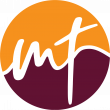STAYING SAFE AND HEALTHY DURING COVID-19: The Facts, The Risks, The Solutions
byline of
Donna J. Manier, MSN/Ed, BSN, RN-BC, FCN
The conditions that increase your risk for severe illness from the coronavirus.
Hundreds and thousands of people across the world, have had their lives disrupted and changed forever because of COVID-19. Medical scientists are still trying to figure out this disease, but they have observed a number of preexisting health conditions that have appeared to increase the risk of becoming critically ill if the virus is contracted.
I am not an alarmist, but an astute observer of current health trends and I pass these fact-based observations to my public for your consumption. In short, I have noted some health conditions so you too can be aware, if you experience any of these conditions and the risks of severe complications should you contract the coronavirus.
#1. Diabetes – if uncontrolled, has a higher chance of severe illness from COVID-19. Higher levels of sugar in the blood makes it very difficult for the body to heal itself. A viral infection can cause complications.
SOLUTION: follow your health provider’s directions to keep sugar controlled – meaning, regular testing, taking medication as prescribed, watching diet closely, some daily exercise, drink fluids, wash your hands frequently, and wear a mask when around others.
#2. Stroke – if you have a history of stroke or heart condition or vascular disease, it places you at a higher risk for complications if virus is contracted.
SOLUTION: Make sure you have a more than adequate supply of your current prescriptions. Get them home delivered; stock up on non-perishable foods, especially heart-healthy choices. Wash hands frequently with soap and water and wear a mask when among others.
#3. Obesity – too much fat around the heart and lungs can contribute to obstructive sleep apnea, which is an ability to breathe properly, and causes a significant increase in risk in virus is contacted.
SOLUTION: Losing weight would be the obvious answer, but that is not always possible and especially during a crisis. However, there are things that you can control, such as, choosing heart-healthy foods, eliminating trans fats, reducing carb intake, drinking more water, eliminating high fructose drinks and food. Many more, maybe consulting a dietician could help you get on a better dietary regime. Whatever you do, remember to wash hands frequently with soap and water and wear a mask when out.
#4. Respiratory illness, like COPD, increase the risk, especially if you have been hospitalized for it. According to the Center for Disease Control and Prevention (CDC) this includes “people with chronic lung disease or moderate to severe asthma”.
SOLUTION: Consult your pulmonologist (lung doctor) if you are having breathing difficulties. She may need to test your lung or breathing capacity. Do take prescribed medications as ordered, keep a ready supply of inhalers available, DO not use over-the-counter medications unless ordered by PMD. Consider your diet carefully, eliminating foods that increase allergic reactions. Wash hands frequently and wear a mask when out in public.
#5. Heart disease: According to medical experts, “a COVID-19 infection puts direct stress on the heart that is fighting and causes a huge inflammatory response and pneumonia will lower the oxygen levels the heart need to function”. Smoking, hypertension, diabetes, or previous heart attacks places one at increased risk.
SOLUTION: protect your heart, eat heart-healthy foods, follow medical advice, rest often, but make sure you are not a couch potato, so moderate and tolerable activities an exercise is important. Walking is the best! Walk your neighborhood, enjoying nature, even greeting neighbors you meet. We all miss that social interaction we thrive on, so don't be afraid to say hello and smile behind that mask, and DO wear your mask when out. Remember to wash your hands frequently using soap and water.
#6. Cancer – In some cases, chemotherapy weakens the immune system, putting cancer patients at greater risk.
SOLUTION: Continue to shelter-place, avoiding gatherings of more than 5 people, practicing safe-distancing when you have to be in public, wear mask, and frequent hand-washing is very necessary. Use hand sanitizer when water unavailable.
NOTE: I am not an advocate of hand sanitizer only. This is should be for emergency use when soap and water is not available.
#7. Elevated Blood Pressure - people who have chronically elevated BP (over 130/80, according to the American Heart Association, “may face an increased risk for severe complications". Some of you remember our BP Campaign last year. Our goal was to show a significant reduction in blood pressures for each individual. Unfortunately, the program was less than successful for several reasons, but I continue to urge you to "know your numbers”.
SOLUTION: Know your numbers and be intentional about lowering them. Follow medical advice, keeping other conditions under control “maintaining good health and hygiene”. Do not use OTC medications that can elevate your BP, or use alcohol (ETOH) or caffeine, or mix certain foods with certain herbs.
#8. Kidney Disease – people with chronic or acute kidney disease are already predisposed to higher risk of infections, and in particular to the coronavirus. As the virus progresses, it will cause kidney failure.
SOLUTION: maintain your fluid balance as directed by your treatment team, keeping to the right amount of fluid in your body – too little can cause dehydration, too much will overload the system and decrease the lungs ability to fight.
This article is for information only and is not a substitute for your medical treatment team. Although legitimate health education is important, you will have a fighting chance if you follow the advice and direction of your team.
June 12, 2020 DJM – The Nurse Perspective
